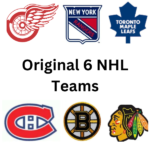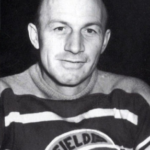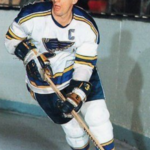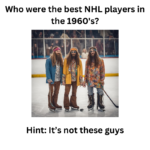As the curtain fell on the tumultuous 1960s, the seventies ushered in a new era of swagger, toughness and brilliance on the icy battlegrounds of the National Hockey League (NHL). This captivating decade spot-lighted the horror of disco dancing but also the rise of some of the best hockey players of all time. From Bobby Orr’s revolutionary blueline brilliance to Phil Esposito’s goal-scoring exploits, Marcel Dionne’s dazzling displays, and the tenacious leadership of Bobby Clarke, the seventies boasted an unparalleled assembly of talent.
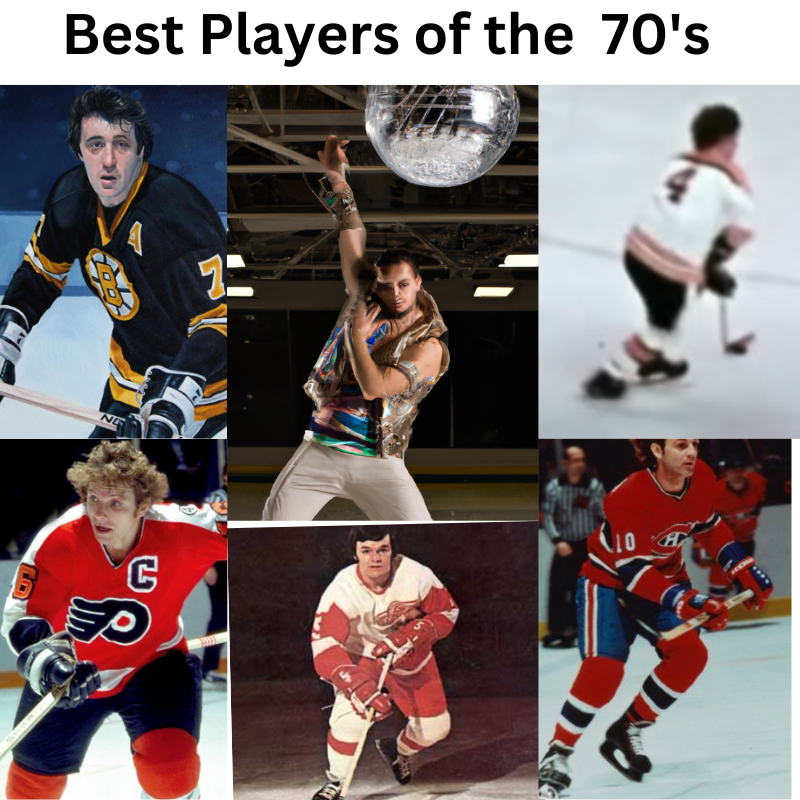
Let’s have a look at some great players from the seventies and the reasons why they will also be remembered as some of the best hockey players of all time.
Bobby Orr – The Maestro of the Blue Line:
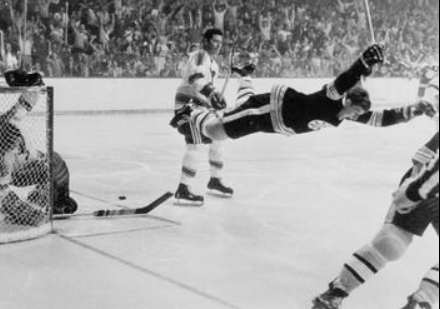
Bobby Orr is widely regarded as one of the greatest defensemen in the history of the NHL, and the seventies were the pinnacle of his career. Orr’s offensive prowess revolutionized the way defensemen played the game. In the 1970-71 season, he set a record for most points by a defenseman with a staggering 139, a testament to his ability to impact both ends of the rink.
Amidst his accolades, Orr secured eight Norris Trophies (awarded to the best defenseman) during the decade, further solidifying his status as a hockey legend. His career-defining moment came in 1970 when he scored the overtime goal to secure the Boston Bruins’ Stanley Cup victory, etching his name in hockey history.
Bobby Clarke – The Heart of the Broad Street Bullies:
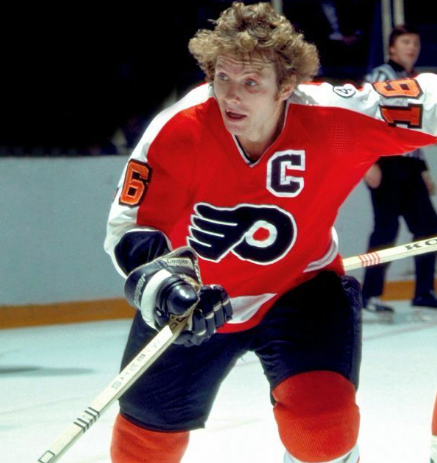
Bobby Clarke, captain of the Philadelphia Flyers, embodied the gritty and physical style of play that defined the Broad Street Bullies era. Clarke’s leadership and skill were instrumental in the Flyers’ back-to-back Stanley Cup championships in 1974 and 1975.
Clarke’s tenacity was exemplified by his impressive point totals, including three seasons where he surpassed the 100-point mark. Beyond statistics, his fiery on-ice demeanor and ability to rally his teammates made him an unforgettable figure in seventies hockey.
Guy Lafleur – The Flying Frenchman:
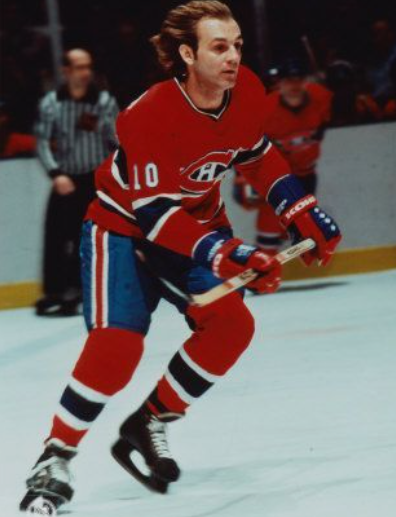
Guy Lafleur, a dazzling forward for the Montreal Canadiens, showcased the artistry and finesse of the game. Lafleur won three consecutive Hart Trophies as the league’s most valuable player from 1976 to 1978, a testament to his offensive prowess and playmaking abilities.
Lafleur’s contribution to the Canadiens’ four consecutive Stanley Cup victories from 1976 to 1979 solidified his place among the greatest players of the seventies. His graceful style and flair captivated audiences, earning him the nickname “The Flower.”
Phil Esposito – The Prolific Goal Scorer:
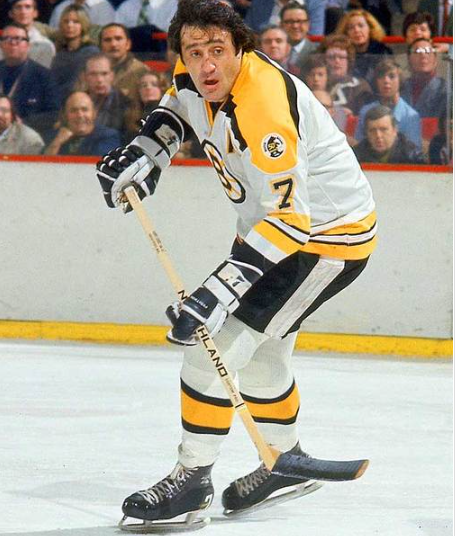
Phil Esposito was a force to be reckoned with in the 1970s, known for his incredible goal-scoring ability and offensive dominance. Esposito played a crucial role in the success of the Boston Bruins, leading the league in goals for six consecutive seasons from 1969-70 to 1974-75.
Esposito’s peak came in the 1970-71 season when he shattered the single-season goal-scoring record with an astounding 76 goals, a feat that stood until Wayne Gretzky surpassed it in the 1981-82 season. His scoring prowess and consistency earned him two Hart Trophies, and he played a pivotal role in the Bruins’ Stanley Cup victories in 1970 and 1972.
Marcel Dionne – The Dazzling Centerman:
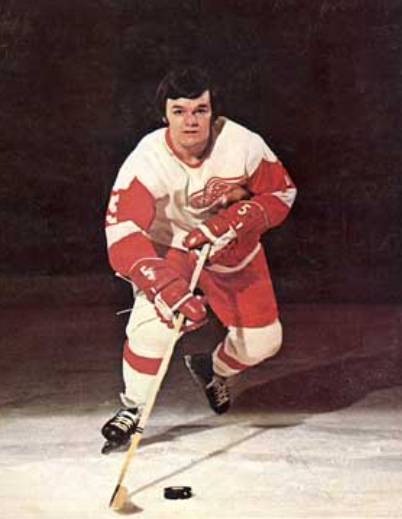
Marcel Dionne, a dynamic centerman, left his own mark on the NHL throughout the 1970s with his scoring prowess, playmaking abilities, and remarkable consistency. Dionne played for the Detroit Red Wings and later the Los Angeles Kings, showcasing his offensive talents and becoming one of the most prolific scorers of the era.
Dionne’s standout seasons included three consecutive years (1974-75 to 1976-77) where he exceeded the 100-point mark, an impressive feat that underscored his offensive impact. His remarkable agility and stickhandling made him a nightmare for opposing defenses, and he consistently ranked among the league leaders in goals and assists.
While Dionne didn’t secure a Stanley Cup during the seventies, his individual achievements were substantial. He was awarded the Lady Byng Trophy for sportsmanship on two occasions and finished in the top ten in league scoring for eight consecutive seasons.
The Global Landscape of the Seventies:
While these hockey titans were dominating the ice, the world outside the rink was undergoing significant transformations. The seventies witnessed the end of the Vietnam War, the rise of disco culture, and the oil crisis. These events, along with political and social shifts, provided a backdrop to the excitement and drama unfolding on hockey rinks across North America.
Conclusion: The seventies produced a pantheon of hockey greats whose contributions continue to be celebrated today. Whether it was Orr’s revolutionary play, Clarke’s gritty leadership, or Lafleur’s mesmerizing skill, these players all left some incredible memories and their own legacies in the game. As we reflect on this golden era of hockey, we recognize that the seventies were not only a time of remarkable athletic achievement but also a period shaped by the global events that defined an unforgettable decade.
Thanks for your time. Please leave comments and suggestions below.

